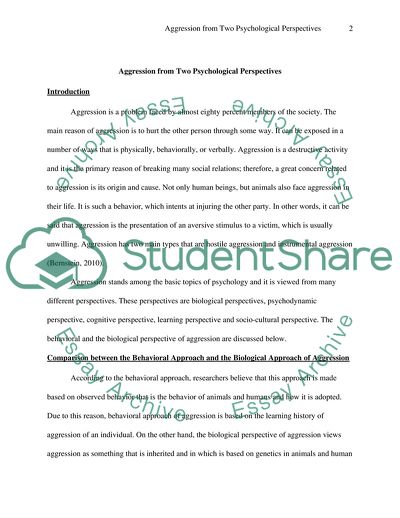Cite this document
(Aggression from Two Psychological Perspectives Essay Example | Topics and Well Written Essays - 1250 words, n.d.)
Aggression from Two Psychological Perspectives Essay Example | Topics and Well Written Essays - 1250 words. https://studentshare.org/psychology/1778221-compare-and-contrast-explanations-for-aggression-from-two-psychological-perspectives
Aggression from Two Psychological Perspectives Essay Example | Topics and Well Written Essays - 1250 words. https://studentshare.org/psychology/1778221-compare-and-contrast-explanations-for-aggression-from-two-psychological-perspectives
(Aggression from Two Psychological Perspectives Essay Example | Topics and Well Written Essays - 1250 Words)
Aggression from Two Psychological Perspectives Essay Example | Topics and Well Written Essays - 1250 Words. https://studentshare.org/psychology/1778221-compare-and-contrast-explanations-for-aggression-from-two-psychological-perspectives.
Aggression from Two Psychological Perspectives Essay Example | Topics and Well Written Essays - 1250 Words. https://studentshare.org/psychology/1778221-compare-and-contrast-explanations-for-aggression-from-two-psychological-perspectives.
“Aggression from Two Psychological Perspectives Essay Example | Topics and Well Written Essays - 1250 Words”. https://studentshare.org/psychology/1778221-compare-and-contrast-explanations-for-aggression-from-two-psychological-perspectives.


